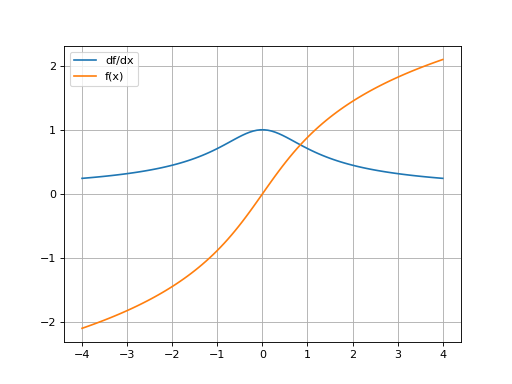mygrad.sinh#
- class mygrad.sinh(x: ArrayLike, out: Tensor | ndarray | None = None, *, where: Mask = True, dtype: DTypeLikeReals = None, constant: bool | None = None)#
Hyperbolic sine, element-wise.
This docstring was adapted from that of numpy.sinh [1]
- Parameters:
- xArrayLike
Input tensor.
- outOptional[Union[Tensor, ndarray]]
A location into which the result is stored. If provided, it must have a shape that the inputs broadcast to. If not provided or None, a freshly-allocated tensor is returned.
- constantOptional[bool]
If
True, this tensor is treated as a constant, and thus does not facilitate back propagation (i.e.constant.gradwill always returnNone). Defaults toFalsefor float-type data. Defaults toTruefor integer-type data. Integer-type tensors must be constant.- whereMask
This condition is broadcast over the input. At locations where the condition is True, the
outtensor will be set to the ufunc result. Elsewhere, theouttensor will retain its original value. Note that if an uninitialized out tensor is created via the defaultout=None, locations within it where the condition is False will remain uninitialized.- dtypeOptional[DTypeLikeReals]
The dtype of the resulting tensor.
- Returns:
- yTensor
The corresponding hyperbolic sine values.
References
[1]Retrieved from https://numpy.org/doc/stable/reference/generated/numpy.sinh.html
M. Abramowitz and I. A. Stegun, Handbook of Mathematical Functions. New York, NY: Dover, 1972, pg. 83.
Examples
>>> import mygrad as mg >>> mg.sinh(0) Tensor(0.0)
>>> # Example of providing the optional output tensor >>> out1 = mg.tensor([0], dtype='d') >>> out2 = mg.sinh([0.1], out=out1) >>> out2 Tensor([0.10016675]) >>> out2 is out1 True
(Source code, png, hires.png, pdf)

- Attributes:
- identity
- signature
Methods
accumulate([axis, dtype, out, constant])Not implemented
at(indices[, b, constant])Not implemented
outer(b, *[, dtype, out])Not Implemented
reduce([axis, dtype, out, keepdims, ...])Not Implemented
reduceat(indices[, axis, dtype, out])Not Implemented
resolve_dtypes(dtypes, *[, signature, ...])Find the dtypes NumPy will use for the operation.
- __init__(*args, **kwargs)#
Methods
__init__(*args, **kwargs)accumulate([axis, dtype, out, constant])Not implemented
at(indices[, b, constant])Not implemented
outer(b, *[, dtype, out])Not Implemented
reduce([axis, dtype, out, keepdims, ...])Not Implemented
reduceat(indices[, axis, dtype, out])Not Implemented
resolve_dtypes(dtypes, *[, signature, ...])Find the dtypes NumPy will use for the operation.
Attributes
identitynargsninnoutntypessignaturetypes